As cities continue to grow at an unprecedented rate, so do opportunities for the development of local economies. Spatial design is crucial to consider during the growth phases of a city because growth means opportunity for business, business means people, people mean housing and services. Past trends suggest that where lucrative jobs are being created, the price of living space increases, often creating a barrier for social and financial exclusion. Would encouraging the relocation of large businesses into peri-urban areas break down the current barriers? The Interchange is made possible by Absa and Tshimong.
Read moreOver the past 3 years, there has been a lot of buzz around the onset of the 4th Industrial Revolution (4IR). The 4IR offers huge potential to transform and realign our economies and societies. But, how do we play a shaping role to prepare societies and industries at large for this economic era, and ultimately help shape the impact of the 4IR? Can we accelerate the development and implementation of emerging science and technology to the benefit of citizens, society and the public interest? In doing so, are we able to learn from the mistakes of the past in order to mitigate massive exclusions, human rights violations and regulatory lag? The Interchange is made possible by Absa and Tshimong.
Read moreMore often than not, the leadership in Africa has been defined by violent dictatorships. So much so that people wonder if the “Benevolent Dictator” exists and whether or not “The People” always know what’s best for themselves. The contrasting leadership styles of Rwandan President Paul Kagame and that of Ugandan President Yoweri Museveni are examples of incumbent leaders who function in democracies - yet the outcome of their leadership is worlds apart. While there are African countries that have thrived under democracy, the question remains: Is democracy a system imposed on Africa? And is it the universal solution for African governance? The Interchange is made possible by Absa and Tshimong.
Read moreWomen’s rights in the workplace are a contentious topic. Men have always had the benefit of getting the opportunities, the higher salaries and continue to be the majority of executives running companies and sitting at the helm of industries. How can the state and the private sector be more inclusive of women? Can gender quotas be used in a meaningful way that gives deserving women a chance to thrive? The Interchange is made possible by Absa and Tshimong.
Read moreFor many of us, our schooling careers included going to university once completing high school. But, as online learning becomes one of the fastest growing industries, the modern world is quickly moving away from traditional universities. Many of these traditional universities are like Goliaths: not changing enough for the new world of work. Is there a future for traditional universities? Do we still need universities at all? And if so, how do they need to change to remain relevant? The Interchange is made possible by Absa and Tshimong.
Read moreSouth African youths are faced with a great challenge: unemployment. Young people between the ages of 15–24 years are the most vulnerable in the local labour market as the unemployment rate among this age group was as high as 55,2% in the first quarter of 2019. The unemployment rate for youths with a higher education qualification in this age group is sitting at 31%; an increase of 11,4% quarter-on-quarter. Does this mean that higher education is still the key to success for these young people? The Interchange is made possible by Absa and Tshimong.
Read moreFor years South Africa has been plagued with violence aimed at foreigners. Could xenophobia be a result of a sense of exceptionalism amongst South Africans? How has this 'Afrophobia' contributed to the downfall of Pan-Africanism among Africans? The Interchange is made possible by Absa and Tshimong.
Read moreWhen most of us think of foreign aid, it’s synonymous with receiving help from another country out of goodwill. Foreign aid is meant to benefit the population of the recipient country, but what is the true cost? Can local problems really be solved with international influence, and should African countries be so willing to accept this help? The Interchange is made possible by Absa and Tshimong.
Read moreMillions of people around the world have been forced to flee their homes, but have remained within the borders of their country of origin. These internally displaced people - or IDPs - are often referred to as refugees by virtue of being displaced, yet they are not legally considered to be refugees. Scores of IDPs are stuck in this inhumane predicament with little to no aid. Is their struggle less important than refugees who are in foreign countries? And how do we intervene to curb the growing number of IPDs in South Africa? The Interchange is made possible by Absa and Tshimong.
Read more
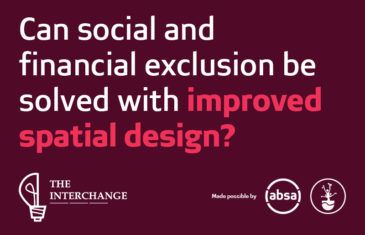
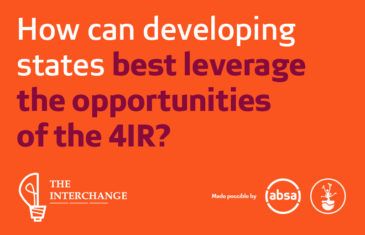
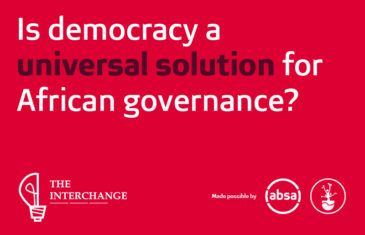
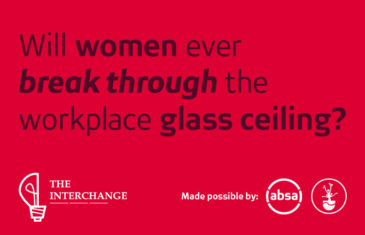
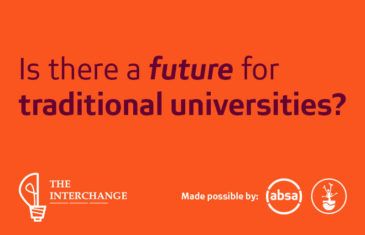
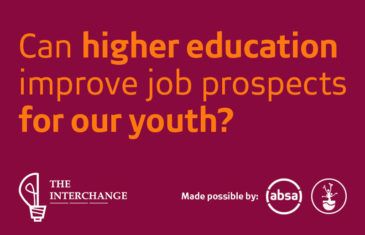
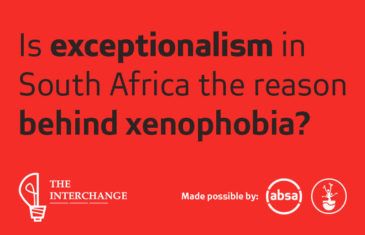
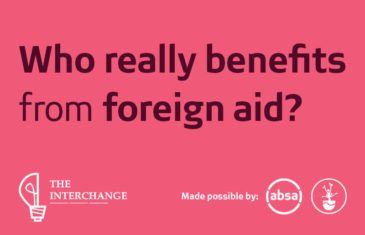
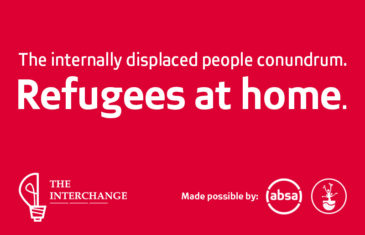
Why is there violent oppression of the LGBTQIA+ community in Africa?
The recognition of gay rights continues to take shape across the globe. However, the violent discrimination against the LGBTQIA+ community is rife on the African continent. Even in countries like South Africa, where human rights are constitutionally protected, members of this community still have to face abuse in their everyday lives. Can we bridge the divide between our Constitution and everyday behaviour? And can South Africa influence other African countries to recognise LGBTQIA+ rights? The Interchange is made possible by Absa and Tshimong.
Read more